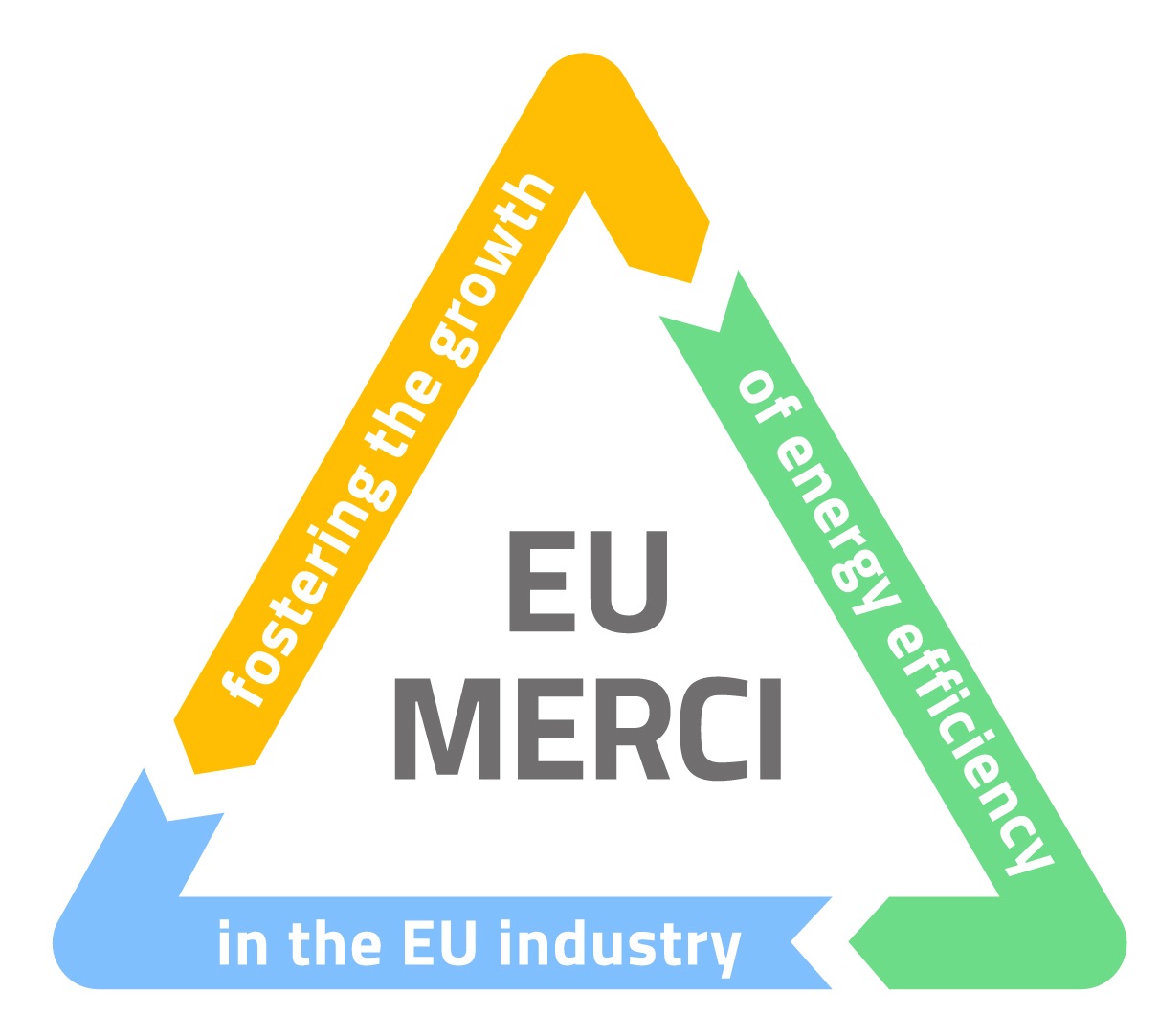The expected outcomes of EU-MERCI project are:
• Selection of exemplary cases and best practices that, in a specific industry sector, may lead to the most effective and efficient EE solutions, considering both the technical and economic aspects;
• For selected specific industry sectors, production of methods of evaluation of savings and algorithms, common procedures (e.g. concerning the needed measurements) and working tools (guidelines and fact sheets) allowing a more correct, objective, clear and transparent assessment of the efficiency achieved with the adopted technical solution.
These outputs of EU-MERCI will be specifically validated for the Agrifood industry, as highly representative of the European manufacturing sector and strongly oriented to the energy efficiency improvement of its processes, in particular:
• Recommendations on improvements of the EES towards efficiency, effectiveness and transparency goals;
• Capacity Building initiatives towards the Stakeholders, through transfer of knowledge by means of
workshops, dissemination and seminar material.
According to the reference Call, EU-MERCI should “prove to influence hundreds of stakeholders playing a key role in the definition and successful implementation of national, regional or local policies. As a result the number of final consumers impacted should be measured in thousands of people”.
The main process through which EU-MERCI will implement this Coordination Action is the transfer of knowledge from the ENABLERS to the FOLLOWERS and, by means of these latter, to the STAKEHOLDERS. In a wider sense, this process subtends the flow of knowledge from the MSs where EESs are more consolidated to the ones where the approach to the energy efficiency in the industry is at a starting point and needs to be accelerated through experienced mechanisms.
However, the goal of increasing the efficiency in Industry will also impact, with specific actions of dissemination of the innovative outputs of EU-MERCI, the more advanced STAKEHOLDERS (and respective countries).
In the implementation of EU-MERCI, there will be therefore three different paths for the transfer of knowledge from the ENABLERS to the STAKEHOLDERS:
- One way will see the FOLLOWER partners as the main actors. They represent the following MSs: Greece, Bulgaria, Romania and Slovenia. Ad hoc Workshops and seminars (webinars) will be organized in those countries, targeting different industry sectors, the respective associations and interest groups to disseminate the outcomes of EU-MERCI. It is expected that each of these actions will mobilize around 30-50 representatives of impacted stakeholders (industrial associations; local policy and decision makers; consumers associations; interest groups like financing organizations, environment agencies, etc.) as direct participant to the dissemination/capacity building activity and, through them, other 100-150 stakeholders. These figures will be validated through feedbacks (e.g. the registration in the EU-MERCI website) from the stakeholders themselves.
As a result of the direct impact of the FOLLOWERS initiative a minimum overall amount of 800-1000 impacted stakeholders will be accounted.
The “in field” actions will be supported by the dissemination tools of the project: i.e. the website, the webinars, the newsletters, the leaflets, etc. - The second path of the transfer of knowledge from EU-MERCI to the stakeholders will specifically involve the European AGRIFOOD industry through the country associations. This initiative will benefit by the presence in the EU-MERCI consortium of GEIE SPES, a federation of agrifood industry associations of the following countries: France, Italy, Belgium, Czech Republic, Hungary, Austria, Denmark, Spain, Portugal; Turkey; Greece and Slovenia.
- The third path is the direct transfer of knowledge from EU-MERCI to the generic STAKEHOLDERS, irrespectively of their belonging to more consolidated or less consolidated countries and of their being represented in EU-MERCI, by using the engagements actions, dissemination and exploitation channels.
